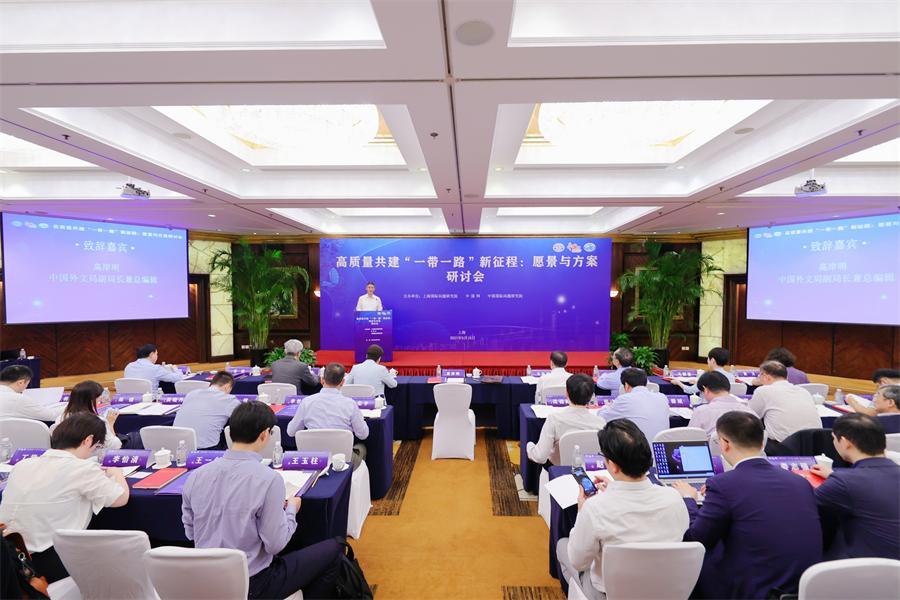
A seminar on the high-quality Belt and Road cooperation is held in Shanghai on Sept. 16, 2023. [Photo courtesy of Shanghai Institutes for International Studies]
A seminar on the high-quality Belt and Road cooperation was held in Shanghai on Saturday.
The event, co-hosted by the Shanghai Institutes for International Studies, China.org.cn, and the China Institute of International Studies (CIIS), centered on the vision and specific projects tied to the Belt and Road Initiative (BRI) China put forward in 2013.
Key attendees included Gao Anming, vice president of China International Communications Group; Chen Bo, Party chief and director of the CIIS; Wang Xiaohui, editor-in-chief of China.org.cn; and Ma Yinghui, deputy director of the Foreign Affairs Office of the Shanghai Municipal People's Government.
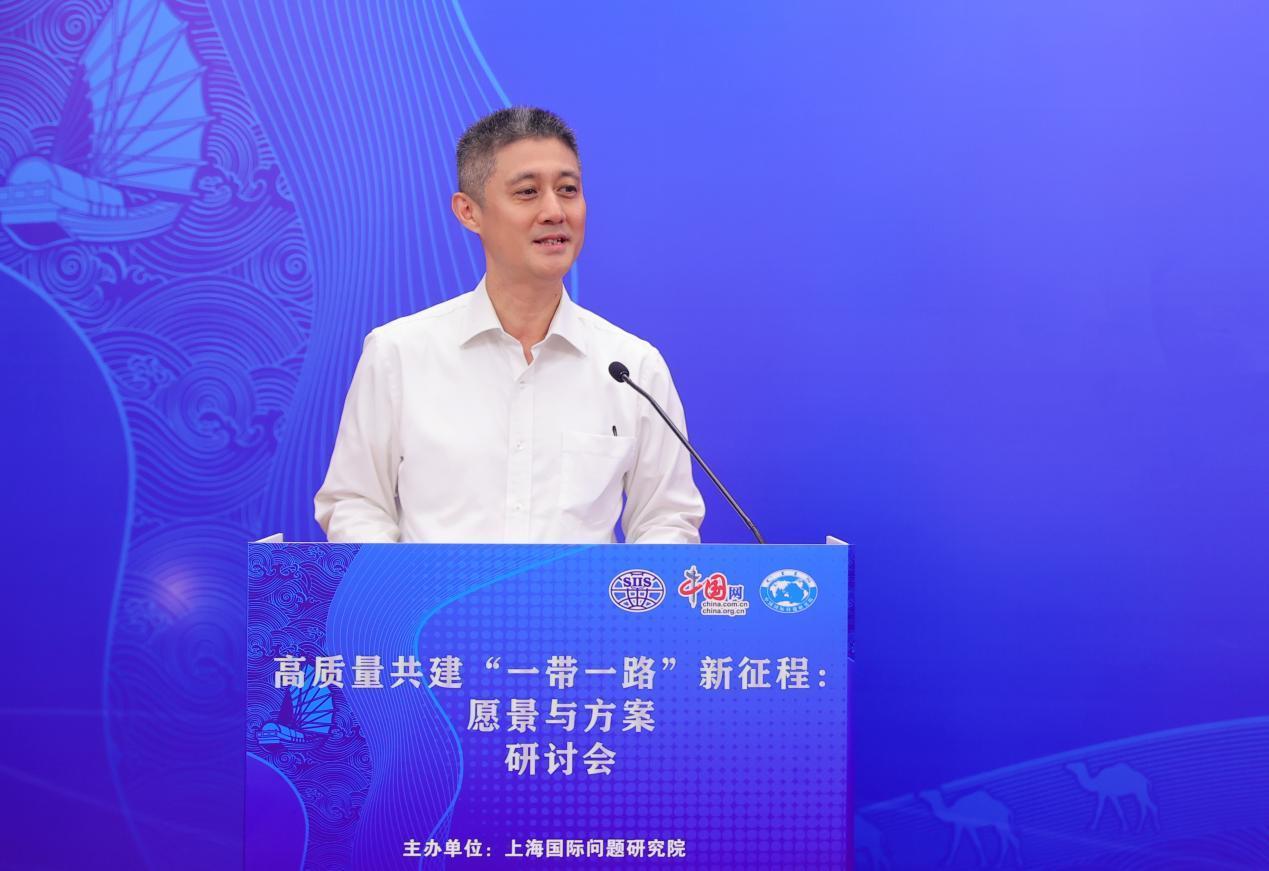
Gao Anming, vice president of China International Communications Group, addresses a seminar on the high-quality Belt and Road cooperation held in Shanghai on Sept. 16, 2023. [Photo courtesy of Shanghai Institutes for International Studies]
Gao suggested that China should further open its doors to the outside world, pursue extensive consultation, joint contribution, and shared benefits, and reinforce the vision of joint contribution through dialogue, consultation, and communication. He also articulated the need to implement the Global Development Initiative and deepen people-to-people exchanges and mutual learning.

Chen Dongxiao, head of the Shanghai Institutes for International Studies, presides over the opening ceremony of a seminar on the high-quality Belt and Road cooperation held in Shanghai on Sept. 16, 2023. [Photo courtesy of Shanghai Institutes for International Studies]
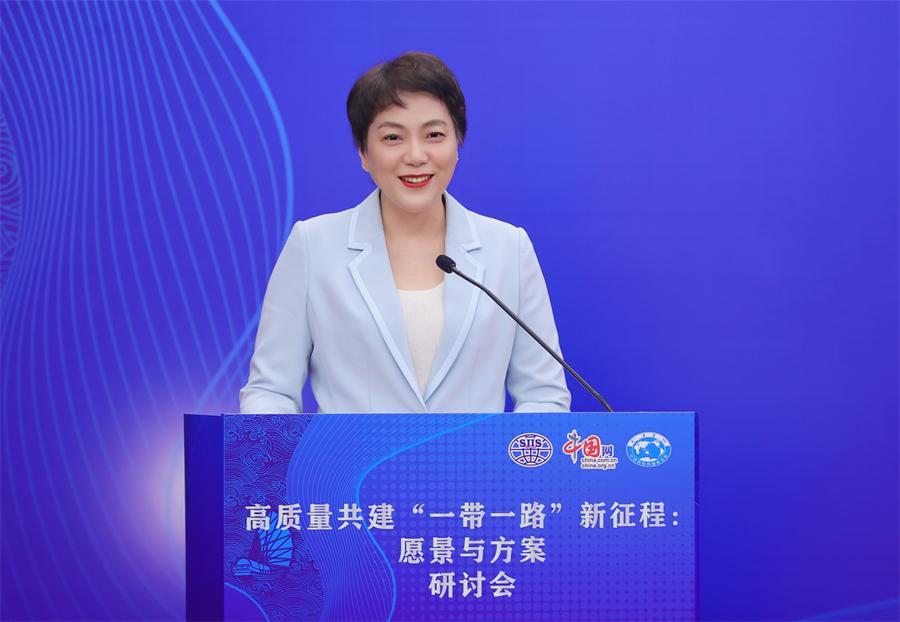
Chen Bo, Party chief and director of the China Institute of International Studies, addresses a seminar on the high-quality Belt and Road cooperation held in Shanghai on Sept. 16, 2023. [Photo courtesy of Shanghai Institutes for International Studies]
Chen Bo pointed out that China should coordinate its development strategies with relevant countries and regions to address the issues that affect people's livelihoods and well-being. He suggested that the country should leverage the pivotal roles of enterprises and think tank scholars to achieve this goal.
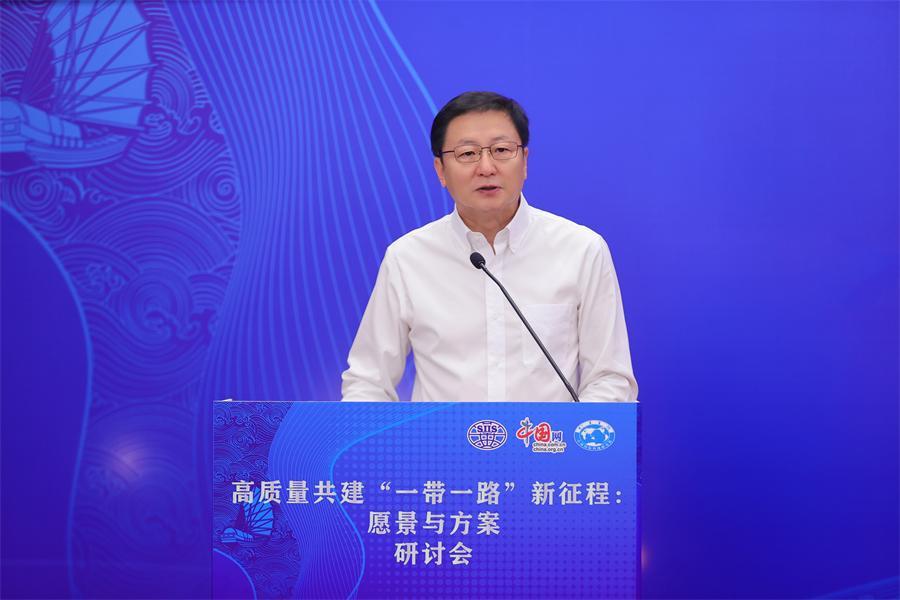
Wang Xiaohui, editor-in-chief of China.org.cn, addresses a seminar on the high-quality Belt and Road cooperation held in Shanghai on Sept. 16, 2023. [Photo courtesy of Shanghai Institutes for International Studies]
Wang stressed that to effectively convey the Belt and Road story, tailored communication strategies should be employed for varied audiences. It's crucial to actively address any concerns and misunderstandings about the initiative. He called for innovating communication technologies and enhancing audience interaction and participation to present BRI stories from multiple perspectives.
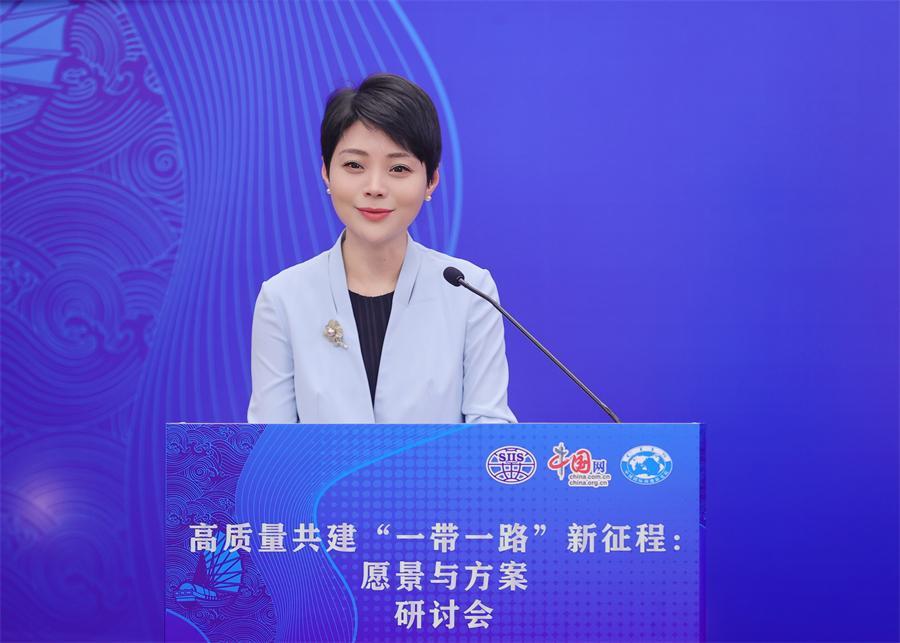
Ma Yinghui, deputy director of the Foreign Affairs Office of the Shanghai Municipal People's Government, addresses a seminar on the high-quality Belt and Road cooperation held in Shanghai on Sept. 16, 2023. [Photo courtesy of Shanghai Institutes for International Studies]
Ma highlighted Shanghai's rapid reforms, openness, and quality growth. With an increasingly open and inclusive approach, the city aims to broaden paths to Chinese modernization, consolidate the achievements of the BRI, and forge ahead with new prospects of the BRI.
Chen Dongxiao underlined that, as the BRI approaches its second decade, China should focus more on its own integrated system reform and institutional opening up. This includes enhancing the resilience of co-construction and cooperation, improving risk management mechanisms, and advocating for green and digital transitions in collaboration. Additionally, he stressed the importance of knowledge exchange and sharing in the supply of public goods.
The seminar explored four main themes: how China's modernization interacts with the evolving concepts of Belt and Road cooperation; how to adapt to and shape new patterns for Belt and Road development; how green transformation and digital empowerment can boost the BRI; and how the Belt and Road can serve as a strategic bridgehead and enhance Shanghai's role as a hub for opening up.
The seminar featured lively and in-depth discussions among over 20 experts, researchers, and scholars from various sectors, such as government, businesses, academia, think tanks, and research institutions. Some of them came from Fudan University, Shanghai International Studies University, East China Normal University, Tongji University, the Export-Import Bank of China, and Huawei.

 中文
中文



